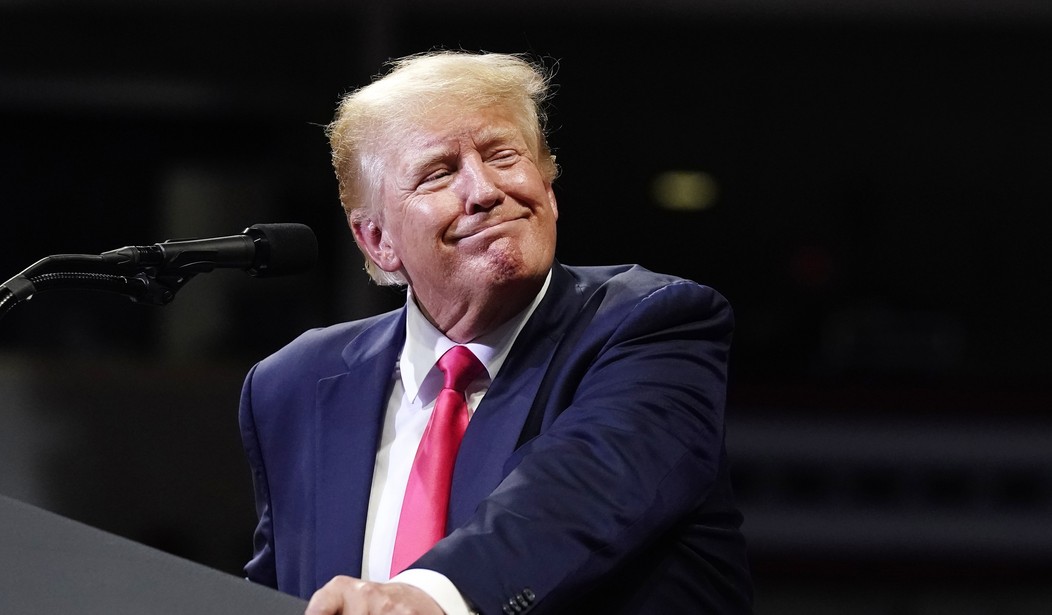Donald Trump and George W. Bush may be in the same fraternity because they’re both former presidents, but that doesn’t mean they are friends or allies. Trump openly blamed Bush for buoying the rise of Barack Obama when he first mulled running in 2012. He’s hurled some harsh criticism of the Iraq War and the war in Afghanistan as being a heinous waste of American resources and power. The cessation of endless wars was a Trump foreign policy item, along with the end of neoconservative projects abroad that generated mixed results regarding exporting liberal democracy to the Muslim world, which also came with a ruinously expensive price tag. On foreign policy, the two camps—Bush and Trump—couldn’t be further apart, though on domestic policy—precisely tax policy—the two presidents do share a common trend, and it heavily involves the Democratic Party.
You cannot make up the irony that’s woven into this story. Both presidents proposed massive tax cuts that generated months of sustained economic growth. The Trump tax cuts caused an unprecedented job-creating climate that saw a slew of companies, Apple included, repatriate vast sums of offshore profits. Numerous small businesses doled out bonuses to their workers. Consumer confidence and those of small business owners reached historic highs. The Bush tax cuts led to 52 months of uninterrupted economic growth in the early days of his presidency. The Democratic Party hated both tax bills. Both were used in campaign materials; the Democrats fundraised from them. It was the big giveaway to the wealthy—a trite talking point that doesn’t resonate are carry the same punch with voters since Democrats have an agenda that has abandoned most if not all priorities that benefit the working class. It’s about keeping white, woke, college-educated voters satisfied.
And for all the vitriol hurled at these tax policies, which lasted in some cases for years—the Democrats ended up either not pushing to repeal them or, better yet, made almost all of them permanent. By the time Obama occupied the Oval Office, those supposed fat cat tax policies had become enduring in 2013. And that’s after Obama extended them in 2010. Yes, Republican tax policy is so destructive that Democrats helped make them eternal. It’s nearly as bad as the GOP promising to repeal Obamacare and then not doing it (via NY Post):
Recommended
President Joe Biden signed the Inflation Reduction Act into law last month, adding to a long history of legislation that will achieve the opposite of what its name claims. Consider the quality of K-12 education after the No Child Left Behind Act, or the affordability of health care after the Affordable Care Act. Already, the Congressional Budget Office projects that the law will have zero impact on inflation. This will not surprise Americans, who, by a three-to-one margin, expect the law to increase inflation, not reduce it.
Yet one surprise about the new tax law is not yet making headlines. In passing their own version of tax reform, the Democrats left the 2017 Tax Cuts and Jobs Act completely intact, despite five years of promises to repeal it. No less than President Biden himself made a campaign promise that “on Day 1, I will move to eliminate Trump’s tax cuts.”
Deference to the TCJA reveals that it is, in fact, good policy with bipartisan appeal. The most obvious thing to fix about the TCJA is to make its key provisions permanent.
Republicans passed the TCJA through budget reconciliation in 2017. Democrats decried the law as “tax cuts for the rich,” funded by a middle-class tax hike. Yet the Joint Committee on Taxation found that the TCJA made the tax code more progressive. And the Congressional Budget Office found that the law cut tax rates across the board, not just for the wealthy. Even The Washington Post belatedly reported that most households got a tax cut.
[…]
Perhaps Democrats became trapped by their own successful messaging campaign against the TCJA, which prevented them from publicly admitting its merits. As two New York Times columnists wrote in a 2019 synopsis: “To a large degree, the gap between perception and reality on the tax cuts appears to flow from a sustained — and misleading — effort by liberal opponents of the law to brand it as a broad middle-class tax increase.”
The TCJA does have one obvious flaw: Some critical provisions will expire in coming years. The law should be made permanent, which would enhance US competitiveness and encourage reshoring American supply chains.
The Trump tax cuts will probably be made permanent as well. Now, that will be a sight to see.
























Join the conversation as a VIP Member